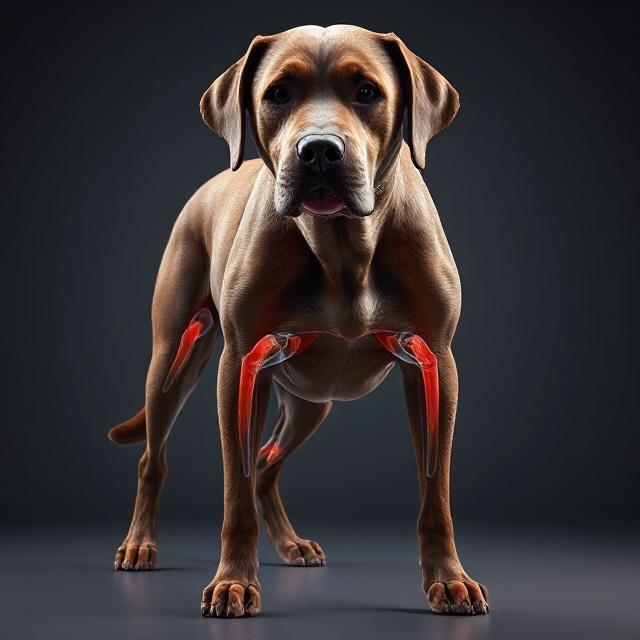Labrador Retriever Health Issues & How to Prevent Them
Introduction
The Labrador Retriever is one of the world’s most beloved dog breeds, known for its loyalty, intelligence, and affectionate nature. But just like any other breed, Labs are prone to certain health issues. As a responsible pet owner, understanding these common Labrador Retriever health problems and learning how to prevent them is essential to ensure a long, healthy, and happy life for your furry friend.
In this blog post, we’ll cover the top health concerns affecting Labrador Retrievers and provide practical tips to help you prevent or manage these conditions effectively.
1. Obesity
Why It’s a Problem:
Labradors love to eat and are notorious for their big appetites. Unfortunately, this makes them prone to obesity, which can lead to joint issues, heart problems, diabetes, and a shortened lifespan.
✅ Prevention Tips:
- Feed a balanced, portion-controlled diet
- Avoid giving too many treats or table scraps
- Provide at least 60 minutes of exercise daily
- Use slow-feeder bowls to prevent overeating
- Monitor weight regularly and adjust food intake as needed
2. Hip and Elbow Dysplasia
Why It’s a Problem:

Hip and elbow dysplasia are genetic joint disorders that affect many large breeds, including Labradors. These conditions cause the joints to develop improperly, leading to pain, stiffness, and difficulty walking.
✅ Prevention Tips:
- Buy from reputable breeders who test for joint health
- Maintain a healthy weight to reduce joint stress
- Avoid over-exercising puppies, especially on hard surfaces
- Add glucosamine supplements to support joint health (ask your vet)
- Schedule regular vet checkups for early detection
3. Ear Infections
Why It’s a Problem:
Labradors have floppy ears, which can trap moisture and dirt. This creates the perfect environment for bacterial and yeast infections.
✅ Prevention Tips:
- Clean ears weekly using a vet-approved ear cleaner
- Dry ears thoroughly after swimming or bathing
- Trim inner ear hair to promote airflow
- Watch for signs like redness, odor, or excessive scratching
4. Progressive Retinal Atrophy (PRA)

Why It’s a Problem:
PRA is an inherited eye disease that causes gradual vision loss and can lead to blindness. It typically affects Labradors in their middle to senior years.
✅ Prevention Tips:
- Choose a puppy from breeders who test for PRA
- Watch for signs of night blindness or vision changes
- Schedule regular eye exams with your vet
- No cure exists, but early detection helps adapt the home environment
5. Exercise-Induced Collapse (EIC)

Why It’s a Problem:
EIC is a genetic disorder seen in some Labradors. Affected dogs may collapse after intense exercise due to muscle weakness or loss of coordination.
✅ Prevention Tips:
- Ask breeders for genetic EIC test results
- Avoid excessive or intense play, especially in hot weather
- Watch for signs like wobbliness, dragging limbs, or sudden collapse
- Let your Lab rest and cool down after physical activity
6. Bloat (Gastric Dilatation-Volvulus)
Why It’s a Problem:
Bloat is a life-threatening condition where the stomach fills with gas and twists. It can cut off blood flow and requires emergency surgery.
✅ Prevention Tips:
- Feed smaller meals twice a day instead of one large meal
- Avoid vigorous activity immediately before or after eating
- Use slow-feeder bowls to prevent fast eating
- Know the warning signs: restlessness, swollen abdomen, retching without vomit
7. Cold Tail (Limber Tail Syndrome)
Why It’s a Problem:
Also known as “swimmer’s tail,” this temporary condition causes a limp and painful tail after overuse, especially after swimming in cold water.
✅ Prevention Tips:
- Don’t let your Lab overexert in cold water
- Warm up before swimming, especially in cold weather
- Allow proper rest after intense activity
- Symptoms usually resolve within a few days, but consult your vet if it persists
8. Skin Allergies
Why It’s a Problem:
Labradors are prone to allergic reactions that can cause itchy skin, redness, hair loss, and infections. Triggers may include food, pollen, fleas, or dust mites.
✅ Prevention Tips:
- Use hypoallergenic dog shampoo
- Maintain a clean home to reduce allergens
- Switch to limited-ingredient or grain-free diets if needed
- Provide flea and tick prevention treatments
- Regular vet visits to identify and manage specific allergens
Regular Health Maintenance Tips
Beyond treating specific issues, here are general health care habits to keep your Labrador in top shape:
- Annual vet visits for checkups and vaccinations
- Dental care: Brush their teeth 2–3 times a week
- Parasite prevention: Use monthly flea, tick, and worm treatments
- Hydration: Always provide clean, fresh water
- Mental stimulation: Keep your Lab engaged with training, toys, and puzzles
Conclusion
Labrador Retrievers are energetic, intelligent, and loving companions—but they do come with a set of health risks that owners must be aware of. By understanding the common Labrador Retriever health problems and taking preventive action, you can ensure your pup enjoys a long, healthy, and joyful life by your side.
If you’re considering adopting or already own a Lab, proper care, exercise, nutrition, and regular vet visits will go a long way in keeping your furry friend in top condition.





Post Comment